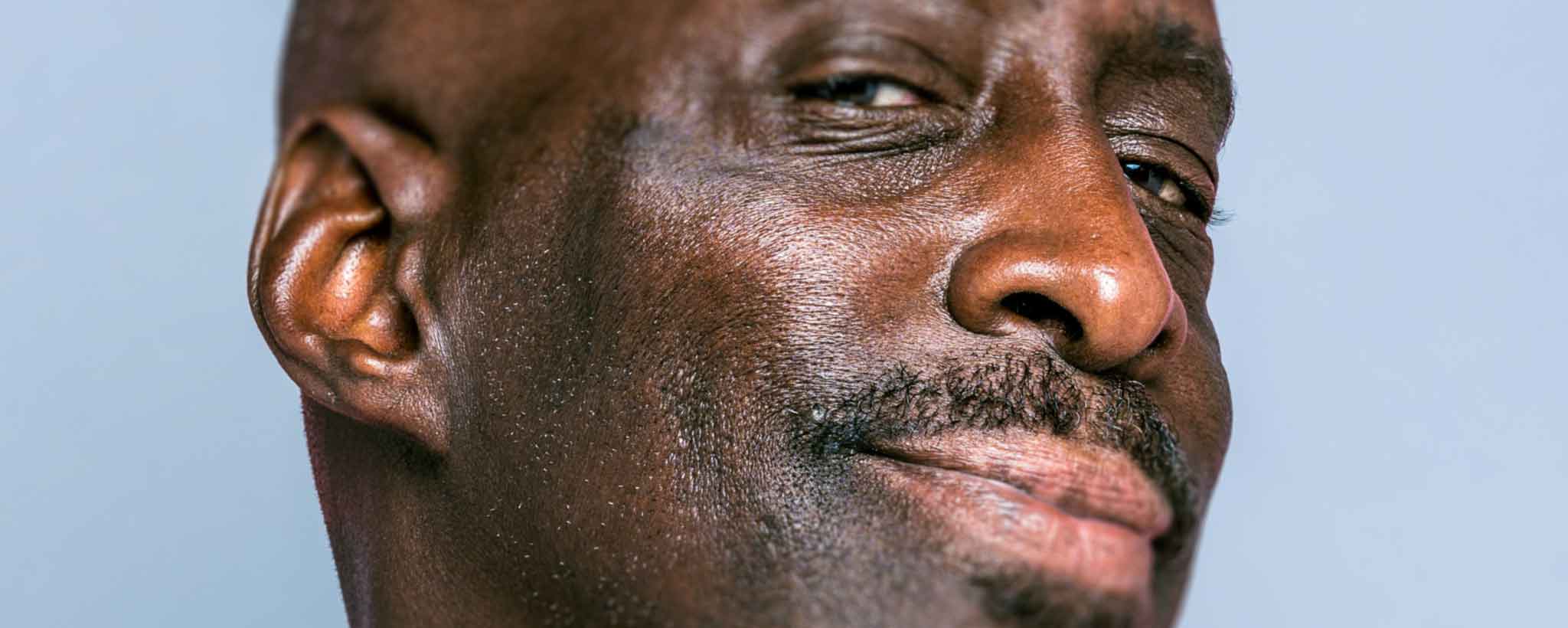Publish 16 September 2021
There are several causes for eating disorders. The solution to anorexia nervosa is not as simple as eating more. Anorexics are trying to look normal.
Look Through Their Eyes
Unless you have a super-fast metabolism, you understand the challenge of maintaining a healthy weight. Slack up on exercise or bring home a box of donuts and suffer the consequences.
Pretty soon, the unforgiving scale punishes you with higher numbers. Then the cycle of losing weight resumes. You are not as alone as you feel.
People with anorexia nervosa go through the same thing. They obsessively try to reach what they perceive to be a healthy weight. Every day, the reflection in the mirror tells the lie: ‘You are not reaching your goal.’ The response? “I am failing.” “I look fat.” “I need to lose more weight.” These thoughts bombard the mind of an individual with anorexia nervosa.
You might suspect someone you know is anorexic. Perhaps you have taken them out for a meal to see if they eat anything. By foraging through a large salad, they deceived you into believing everything is all right. What you missed was their behavior when they returned home alone.
What is Anorexia Nervosa?
Anorexia nervosa is an eating disorder where the individual has a very low body weight coupled with a fear of gaining weight. Their understanding of weight is not within the normal perception. It is exaggerated or unrealistic.
You can stand side by side with them in a full-length mirror. What you see as too thin, they see as overweight. Telling them to eat more is an ineffective solution.
This emotional and behavioral problem most often affects women. Between 0.3 to 0.4% of young women and 0.1% of young men suffer from anorexia nervosa at any given time. [1]
People who experience this eating disorder expend much effort obsessing about their body weight. Some people who are anorexic may practice binge eating followed by purging.
Young people with anorexia have 10 times the risk of dying.
Not just a variation in body type, anorexia nervosa can weaken bones, resulting in fractures. It’s dangerous. Young people between the ages of 15 and 24 with anorexia have 10 times the risk of dying compared to their peers of the same age. One in five deaths from anorexia is by suicide. [2] Do not minimize it as a bad habit.
Physical Signs of Anorexia Nervosa
These symptoms appear because of deliberate starvation:
- Drastic weight loss
- Emaciation
- Insomnia
- Dehydration
- Fainting
- Thinning hair
- Intolerance to cold temperatures
- Low blood count
- Blue fingers or toes
- Abdominal pains
Emotional Symptoms
- Cooking for others without eating
- Skipping meals throughout the day
- Refusing to eat
- Consuming low-calorie foods
- Avoiding food in public spaces
- Complaining about being fat
- Wearing padded clothes
- Lacking display of emotions
- Avoiding social interaction
- Focus on flaws in the mirror reflection
- Measuring body and checking weight
Anorexia Causes
Biological – Anorexia may stem from inherited genes. This may create a higher risk for some people. From 50 to 60% of the risk for anorexia is genetic. [3]
Psychological – There can be possible traits relating to OCD (obsessive-compulsive disorder). Perfectionism is a key driving force for many people facing anorexia. From 33 to 50% of anorexia patients have some other mood disorder, such as depression. [4]
Environment – Culture can influence thinness by emphasizing it as the ideal goal. Fashion magazines and peer pressure among young girls also encourage the desire to be thin.
Stress and Anorexia
What begins as a normal diet can devolve into an unending obsession. Stress might lead to anorexia, or it can cause the already existing eating disorder to become worse.
Everyone feels stressed at some point or another. However, for individuals who have anorexia, stress increases in response to environmental and social factors.
Understand the stressful triggers to prevent further destructive mental and or behavioral habits. Therapeutic relaxation can replace the poor stress-coping mechanism of not eating.
Understanding Anorexia Nervosa
Anorexic individuals do everything to prevent weight gain and normally appear very thin. They associate being thin with self-worth; this is their reality.
By restricting the amount of food they eat, they hope to improve their appearance. People who are anorexic also reduce calorie intake by forcibly vomiting after meals, using unnecessary laxatives, or enemas.
Doctors do not classify anorexia nervosa as an addiction. But there are correlations. In a comprehensive study of individuals seeking treatment for eating disorders, 17% had a diagnosis of drug abuse and dependence, with particularly high rates for amphetamines (8%) and cocaine (7%). [5]
You might find someone with anorexia nervosa at a gym every day on the treadmill. With an eye on fitness trackers, she strives to burn calories and shed pounds. This is so she will look as “normal” as everyone around her.
Dancers, models, and actors can develop weight obsessions. The fear of weight gain is one of the main motivations behind anorexia. However, this hazardous, unhealthy eating disorder is not only about exercise and food consumption. It is a coping mechanism for emotional issues.
Only one-third of individuals struggling with anorexia nervosa in the United States obtain treatment. [6] Therapists can help anorexics to modify their outlook and elevate their self-worth. Family support is helpful in this regard. Then, they can progressively learn the value of good nutrition and improve their eating habits. So the first step is not to eat to gain weight.
How You Can Help
It’s helpful if friends and family understand that the individual with anorexia nervosa is in denial about weight. Approaching an anorexic person requires:
- Proper timing
- Heartfelt expression of concern
- Patience
- Support
- Understand the reaction to assist
- Encourage professional help
- No ultimatums
- Not commenting on overall appearance
- Discouraging feelings of shame, guilt, and blame
- Not undermining their reality with simple solutions
Your battle to maintain a healthy weight in the present or past can give you empathy.
To support the writing of useful articles about addictions, ClinicalPosters sells human anatomy charts, scientific posters, and other products online. You may sponsor specific articles, become a ClinicalNovellas Member, or remit a small donation.
ClinicalPosters sells human anatomy charts, scientific posters, and other products online to offset expense of the writing useful articles about addictions. Slide extra posters into DeuPair Frames without removing from the wall.
Show your support by donating, shopping for ClinicalPins, becoming a ClinicalNovellas Member, or leaving an encouraging comment to keep the research going.
To support the writing of useful articles about addictions, ClinicalPosters sells human anatomy charts, scientific posters, and other products online. You may sponsor specific articles or remit a small donation.
ClinicalPosters sells human anatomy charts, scientific posters, and other products online to offset expense of the writing useful articles about addictions. Slide extra posters into DeuPair Frames without removing from the wall.
ClinicalPosters sells human anatomy charts, scientific posters, and other products online. You may remit a small donation or become a ClinicalNovellas Member.
You can support the writing of useful articles about addictions by sponsoring specific articles, becoming a ClinicalNovellas Member, or remitting a small donation.
UPDATED 2025 – This article reflects editorial revisions since its original publication.
FAQ: The dangers of anorexia nervosa
What is anorexia nervosa?
Anorexia nervosa is an eating disorder where the individual has a very low body weight coupled with a fear of gaining weight.
Is anorexia dangerous?
Not just a body type variation, anorexia nervosa can weaken bones, resulting in fractures. One in five deaths from anorexia is by suicide. Do not minimize it as a bad habit.
What are the symptoms of anorexia nervosa?
Drastic weight loss, emaciation, insomnia, dehydration, fainting, thinning hair, intolerance to cold temperatures, low blood count, blue fingers or toes, and abdominal pains.
What causes anorexia?
Anorexia nervosa can stem from biological, environmental, or emotional issues.
What help is available for persons with anorexia nervosa?
Contact the National Hotline For Eating Disorders. Get an action plan from a therapist.
Co-authored by Jonnelle O., who writes about law and psychology.






 Romance & Health Intertwine. Fall in love with a captivating romance miniseries that explores the essence of well-being. Become a ClinicalNovellas member for heartwarming tales.
Romance & Health Intertwine. Fall in love with a captivating romance miniseries that explores the essence of well-being. Become a ClinicalNovellas member for heartwarming tales.




